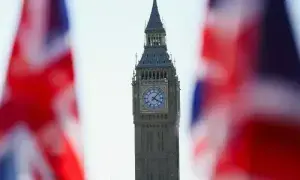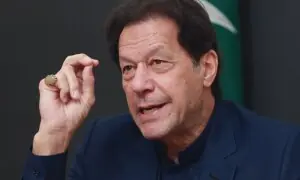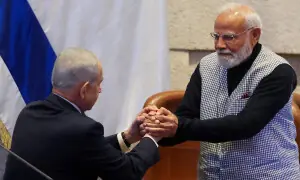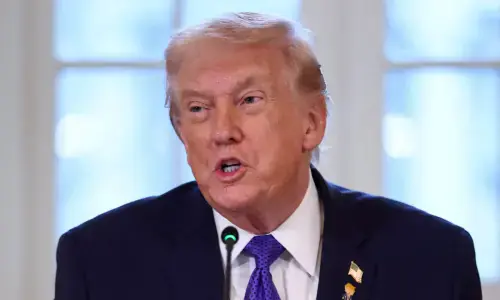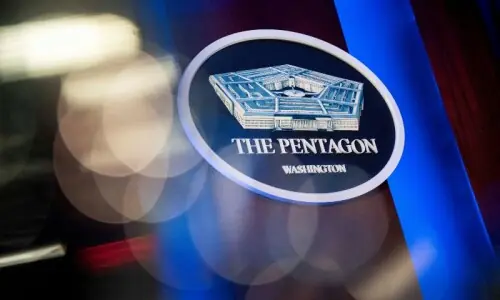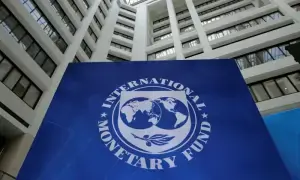With Donald Trump’s victory in the November 5 US presidential election, the foreign policy legacy of the Biden-Harris administration has come under scrutiny.
In the past four years, US President Joe Biden, alongside Secretary of State Antony Blinken and National Security Advisor Jake Sullivan, has prioritised key global issues, including robust support for Ukraine against Russian aggression, a competitive stance with China and steadfast backing for Israel, particularly during the current conflict in the Gaza Strip.
Biden takes office, overturns Trump’s decisions
Biden’s administration, sworn in on January 20, 2021, began with a focus on “reasserting the US role in global diplomacy” and restoring alliances that had been strained under Trump.
Biden reversed several Trump-era policies on his first day, signing 10 executive orders that included rejoining the Paris Climate Agreement, cancelling the Keystone XL Pipeline Project, lifting visa restrictions on certain Muslim-majority countries and halting construction of a border wall.
Soon after, Biden rejoined the World Health Organisation (WHO) and signed 42 executive orders within his first 100 days.
His early actions focused on “repairing the damage done by Trump” and re-establishing international relationships. The administration quickly found common ground with traditional allies and pursued a multilateral approach to global issues.
Strong support for Kyiv against Moscow
A central pillar of the Biden administration’s foreign policy was its strong support for Ukraine following Russia’s invasion in February 2022.
The administration provided $64.1 billion in defence aid, including critical air defence systems like Patriot missiles and other munitions, marking one of the most significant US commitments to a foreign ally in recent history.
The Biden administration encouraged European Nato allies to contribute military support, including F-16 fighter jets, while cautioning Ukraine against using US-made weapons on Russian territory to avoid direct escalation with Moscow.

In multiple visits to the White House, Ukrainian President Volodymyr Zelensky secured bipartisan support in Congress, which Biden leveraged to maintain steady aid.
Vice President Kamala Harris underscored the US commitment to Ukraine at the Munich Security Conferences in 2022 and 2023, pledging continued support.
Trump, however, repeatedly criticised Biden’s extensive spending on Ukraine, asserting he would end the support and adopt a more isolationist approach if reelected.
Gaza conflict dominates final year
One of the most contentious aspects of Biden’s foreign policy legacy is his response to the conflict in Gaza following a Hamas attack on October 7, 2023.
While the Biden administration had previously balanced its approach by supporting Israel’s defence against Iran and endorsing a two-state solution, its stance shifted to unwavering support for Tel Aviv after the attacks, despite growing national and international criticism.
During an October 18, 2023, visit to Israel, Biden expressed unwavering support for Prime Minister Benjamin Netanyahu, affirming the US’ solid backing.
Biden sought an additional $17.9bn in military aid for Israel upon his return, supplementing the annual $3.5bn it already receives.
While Biden issued a memorandum in February requiring Congress to be notified if any US-funded country deliberately blocked humanitarian aid, the administration faced scrutiny for its response to humanitarian concerns in Gaza.
Blinken told Congress in May that Israel was not intentionally preventing humanitarian aid, despite reports from USAID suggesting that Israel was hindering the delivery of food assistance to Gaza.
The State Department’s Bureau of Population, Refugees, and Migration also recommended freezing funds to Israel because of humanitarian concerns, though the calls were ultimately unheeded.
Additionally, Biden’s administration vetoed three UN Security Council resolutions calling for a cease-fire in Gaza, which heightened international criticism.
Maintaining momentum in global competition with China
The Biden-Harris administration adopted a competitive stance with China, focusing on countering Beijing’s influence in technology and security, particularly in the Indo-Pacific region.
Biden lifted some of Trump’s tariffs on Chinese imports but imposed sanctions on 59 Chinese firms with close ties to the Chinese government and military, aiming to curb China’s advancements in sectors like semiconductor manufacturing, artificial intelligence and military technologies.

The administration also emphasised alliances in the Indo-Pacific through the Quadrilateral Security Dialogue (Quad), which saw increased engagement with India, Japan and Australia.
Throughout his time in office, Biden hosted five Quad summits, emphasizing the administration’s message that cooperation with regional allies makes them stronger.
It also approved $850 million in arms sales to Taiwan in 2021 and 2022, signalling a commitment to Taiwan’s security.
Biden’s November 2021 virtual meeting with Chinese President Xi Jinping covered a broad agenda, from trade and Taiwan to human rights, and underscored the administration’s cautious approach to navigating the complex relationship with China.




